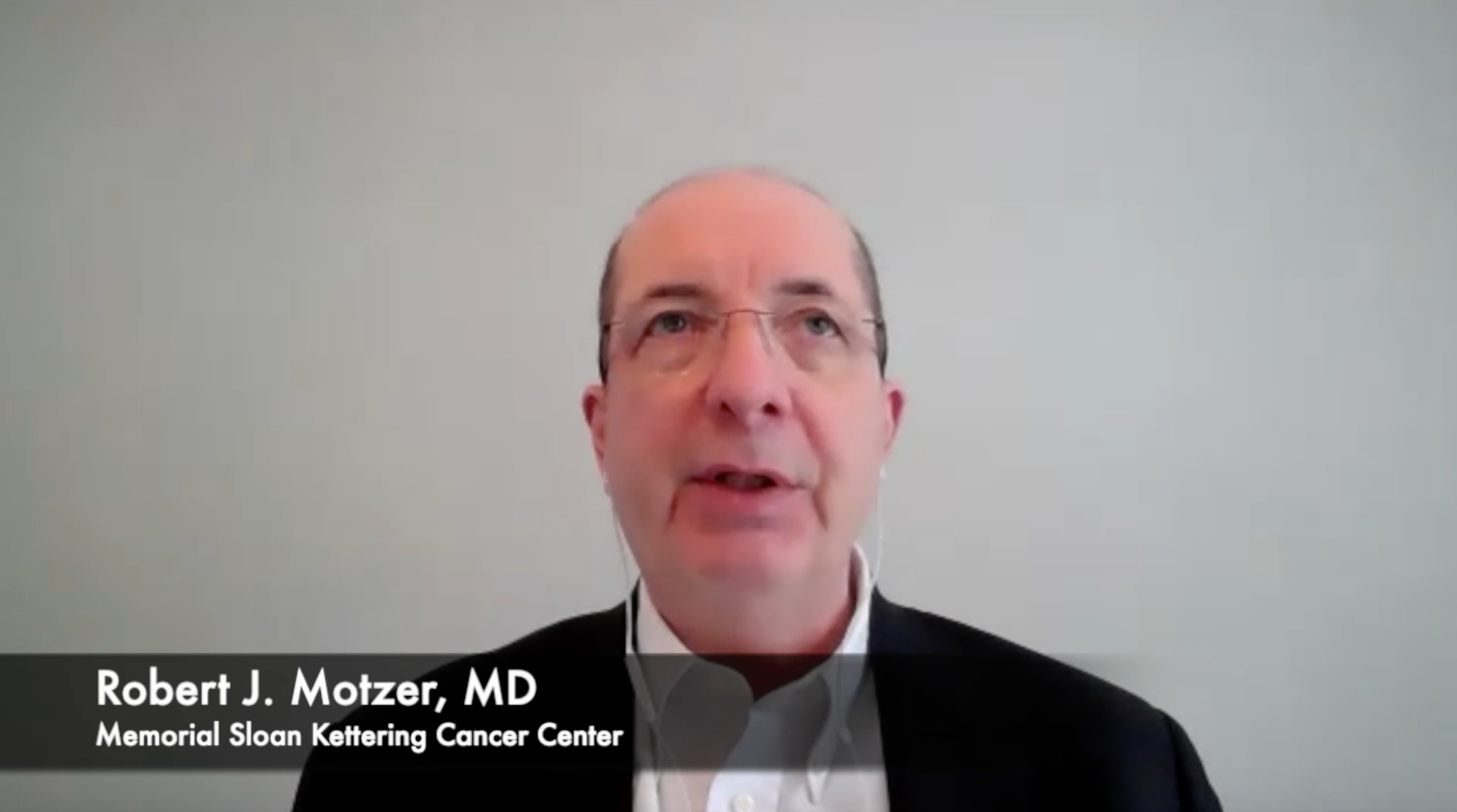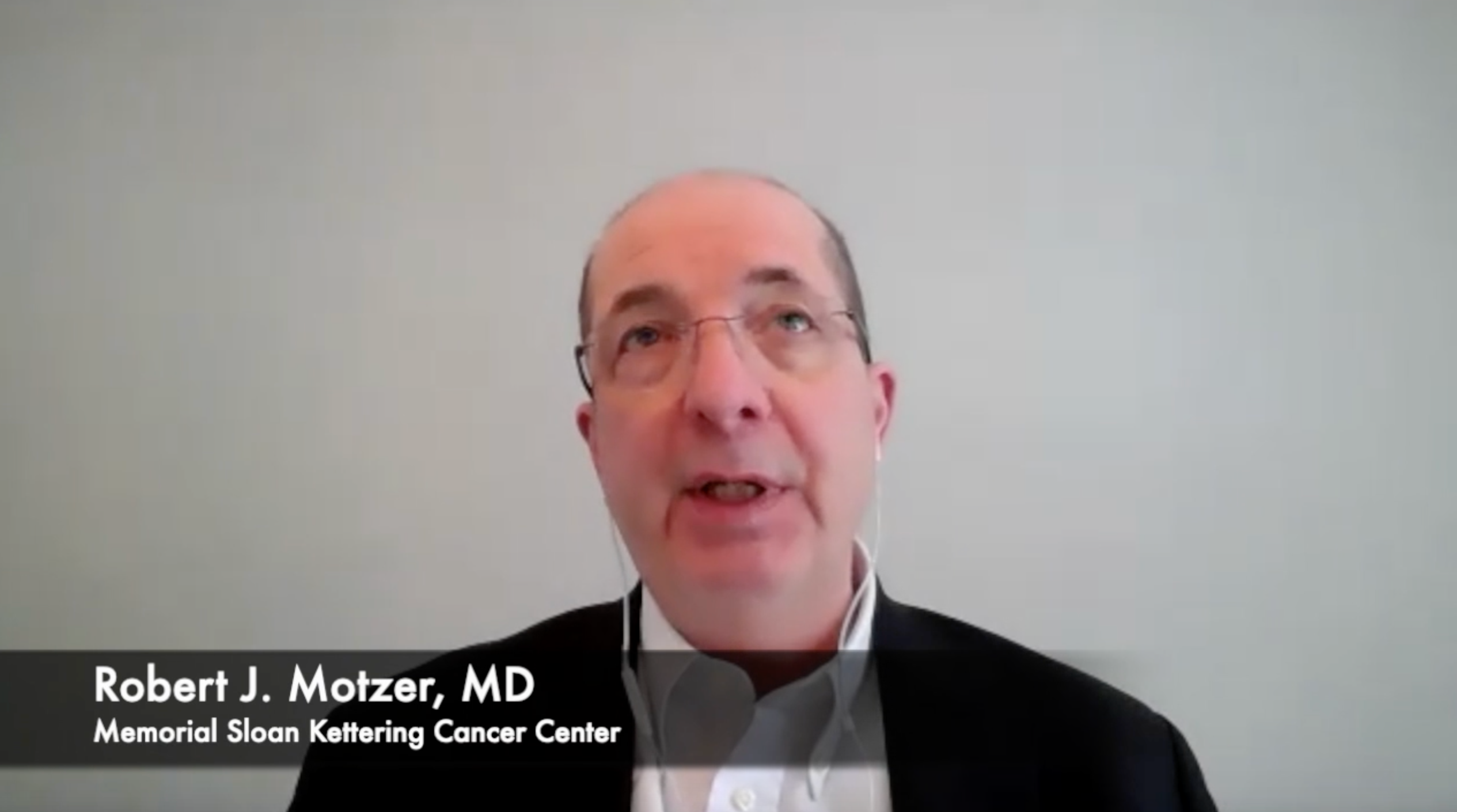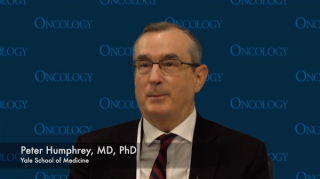
Kidney Cancer
Latest News
Latest Videos

CME Content
More News

Better progression-free survival, as well as improved responses, were seen when lenvatinib was combined with either pembrolizumab or everolimus versus standard-of-care sunitinib in the treatment of patients with advanced renal cell carcinoma receiving therapy in the frontline setting.

Patients with metastatic renal cell carcinoma and brain metastases showed significant intracranial and extracranial responses with cabozantinib use.

Compared against sunitinib, nivolumab plus cabozantinib induced better outcomes in patients with advanced renal cell carcinoma and these results were seen in patients with and without sarcomatoid features.

Pal discussed findings from the SWOG 1500 trial investigating sunitinib versus either cabozantinib, crizotinib, or savolitinib to treat patients with metastatic papillary RCC.

As third- or fourth-line therapy for patients with metastatic RCC, tivozanib hydrochloride demonstrated a statistically significant increased quality-adjusted time without symptoms of disease and toxicity compared with sorafenib.
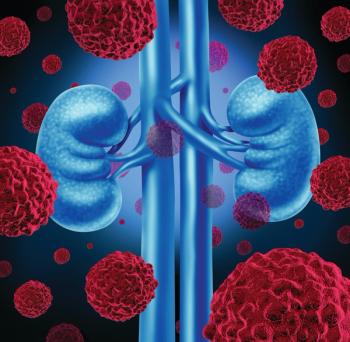
First-line treatment with nivolumab plus cabozantinib demonstrated health-related quality of life benefits in patients with advanced renal cell carcinoma.

“Based on these findings, patients who received lenvatinib 18 mg starting dose had better quality of life and less severe symptoms than those who received lenvatinib 14 mg starting dose,” said Cristiane Decat Bergerot, PhD, MS, BS.

Improvement in overall survival (OS) for patients with metastatic non–clear cell renal cell carcinoma (RCC) was linked with first-line treatment using immune checkpoint inhibitor–based regimens versus select targeted therapies

No significant activity or favorable toxicity profile was found with sapanisertib when treating patients with refractory mRCC regardless of mTOR or PTEN status.

Based on an exploratory analysis of a phase 2 trial, lenvatinib plus everolimus appears to be an acceptable treatment option for patients receiving prior immunotherapy for clear cell renal cell carcinoma.

The FDA granted approval to the combination use of cabozantinib plus nivolumab ahead of its February PDUFA date as therapy for the first-line treatment of patients with advanced renal cell carcinoma.

“Our results suggest that low [intertumoral heterogeneity] is associated with increased response to anti–PD-1 immunotherapy in renal cell carcinoma through increased immune activity involving more neoantigens and less frequent immune evasion,” wrote the study authors, led by Xia Ran.

Combination treatment with telaglenastat (CB-839) and cabozantinib (Cabometyx) did not meet the study’s primary end point of improved progression-free survival versus cabozantinib alone in patients with advanced or metastatic clear cell renal cell carcinoma.

Study results indicated that the small molecule HIF-2α inhibitor MK-6482 induced positive results in patients with certain Von Hippel-Lindau disease–associated solid tumors.
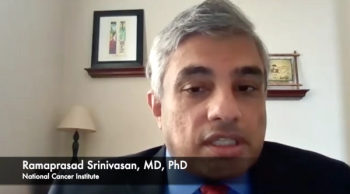
Study results indicated that MK-6482 demonstrated durable efficacy in patients with Von Hippel-Lindau disease-associated clear cell renal cell carcinoma, pancreatic lesions, and hemangioblastomas by targeting the underlying pathophysiology of the disease.
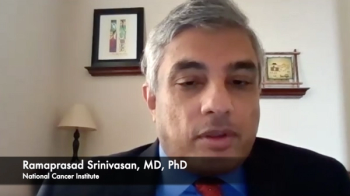
Data presented at SUO indicated that MK-6482 demonstrated durable efficacy in patients with Von Hippel-Lindau disease-associated clear cell renal cell carcinoma, pancreatic lesions, and hemangioblastomas by targeting the underlying pathophysiology of the disease.

The expert from Cedars-Sinai Cancer spoke about the continued integration of immunotherapy-based combination regimens, and the importance of utilizing the multidisciplinary care team to mitigate any possible toxicities that may arise.

The kidney cancer expert from the National Cancer Institute spoke about what ongoing research in the field of kidney cancer is most encouraging and where research should continue to be focused.

Researchers identified the prevalence of germline mutations associated with the early-onset renal cell carcinoma, as well as clinicopathologic factors linked to an increased risk of carrying these mutations.

A phase 2 study found that the investigational HIF-2α inhibitor MK-6482 has durable efficacy in patients with Von Hippel-Lindau associated clear cell renal cell carcinoma and non-renal lesions.

A study from the 21st Annual Meeting of the Society of Urologic Oncology concluded that active surveillance is a safe management strategy for patients with small renal masses suspicious for renal cell carcinoma.

The novel first-in-class small molecule inhibitor of HIF-2α, PT2385 demonstrated the ability to stabilize disease with tolerable safety in patients with von Hippel-Lindau (VHL) disease-associated clear cell renal cell carcinoma (ccRCC) and non-renal tumors, according to results presented in a poster during the 21st Annual Meeting of the Society of Urologic Oncology (SUO).

A phase 1 trial showed that treatment with neoadjuvant nivolumab was tolerable in patients with nonmetastatic high-risk clear cell renal cell carcinoma.

A pooled analysis compared survival among patients with metastatic renal cell carcinoma treated with cytoreductive nephrectomy and either targeted therapy or immunotherapy regimens utilizing checkpoint inhibitors.

The phase 3 KEYNOTE-581/CLEAR trial (Study 307) demonstrated that both combinations saw meaningful improvements in the study’s primary end point of progression-free survival for patients with advanced renal cell carcinoma.



